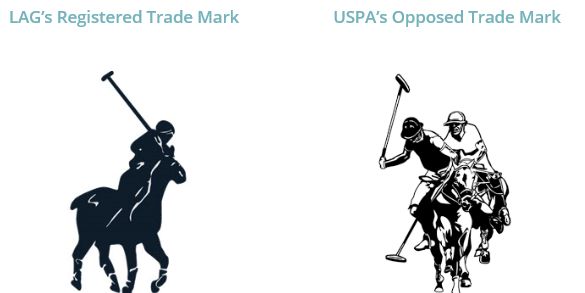Ruling that Commercial Success and Co-Existence in Other Territories are Not Special Circumstances
The Supreme Court of Zambia has recently handed down a judgment in favour of LA Group (Pty) Ltd, in a matter that commenced in 2013. Before reaching the Supreme Court of Zambia for final determination, the matter was fully ventilated before the Registrar of Trade Marks (hereinafter "the Registrar"), the High Court and then the Court of Appeal.
The judgment relates to an opposition filed by LA Group (Pty) Ltd, (hereinafter "LAG") against the registration of the United States Polo Association's (hereinafter "USPA") DOUBLE POLO PLAYER device trade mark in classes 18 and 25. In issue, was whether USPA was entitled to the registration of a polo player device trade mark in the same classes as LAG's earlier registration of a polo player device trade mark.
The appellant, LAG, has a registered trade mark depicting a single Polo player with a raised mallet on a pony. The respondent, USPA, subsequently applied to register a Polo mark depicting two horses and two players with raised mallets. The parties' respective trade marks appear in the table below:
The appellant had opposed the application in terms of, inter alia, section 17(1) of the Trade Marks Act of Zambia (Chapter 401 of the Laws of Zambia) which prevents the registration of a trade mark that is similar or identical to a trade mark already on the register, with respect to the same or similar goods and/or services. Section 17(1) provides that:
"Subject to the provisions of subsection (2), no trade mark shall be registered in respect of any goods or description of goods that is identical with a trade mark belonging to a different proprietor and already on the register in respect of the same goods or description of goods, or that so nearly resembles such a trade mark as to be likely to deceive or cause confusion."
The Registrar, in turn relied on section 17(2) of the Act to permit the registration of the respondent's trade mark. This section provides that:
"In the case of honest current use or other special circumstances which, in the opinion of the Registrar make it proper so to do, the Registrar may permit the registration of trade marks that are identical or nearly resemble each other in respect of the same goods or description of goods by more than one proprietor subject to such conditions and limitations, if any, as the Registrar may think it right to impose."
The Registrar permitted the registration of the respondent's trade mark, despite having found that the respective trade marks were confusingly similar to each other and that the likelihood of confusion was high. The Registrar reasoned that the co-existence of the respective trade marks in various other jurisdictions, as well as the fact that the appellant's trade mark had accrued substantial commercial success -such that consumers would be able to distinguish the trade marks from each other- were special circumstances that justified the registration of USPA's trade mark. The Registrar held this despite the fact that there was no evidence of any use by USPA of its trade mark in Zambia, no evidence of the respective parties' trade marks co-existing in other jurisdictions and without any argument having been raised, or application for registration on this basis having been made, in the papers or at the hearing.
It is noteworthy that the Supreme Court of Zambia dealt with the limitations of the Registrar's discretion to register similar or identical trade marks in terms of section 17(2) of the Act. The Court held that although special circumstances could permit the Registrar to register confusingly similar trade marks, commercial success does not qualify as a special circumstance through which the Registrar could allow the trade marks in question to co-exist. In fact, the registration of a confusingly similar trade mark, would only serve the purpose of dilution to the earlier registered trade mark. The Court held further that although the discretion granted to the Registrar should not be lightly interfered with by other courts, such discretion does not grant the Registrar a carte blanche to permit the registration of confusingly similar trade marks without sound reasoning.
The Supreme Court agreed with the Registrar of Trade Marks that the respective parties' trade marks were confusingly similar but emphasised that there was no evidence on record which could permit USPA's trade mark to proceed to registration on the basis of special circumstances or of honest concurrent use as held by the Registrar. The Registrar's decision was accordingly set aside and LAG's appeal was ultimately upheld, with costs.
The content of this article is intended to provide a general guide to the subject matter. Specialist advice should be sought about your specific circumstances.


